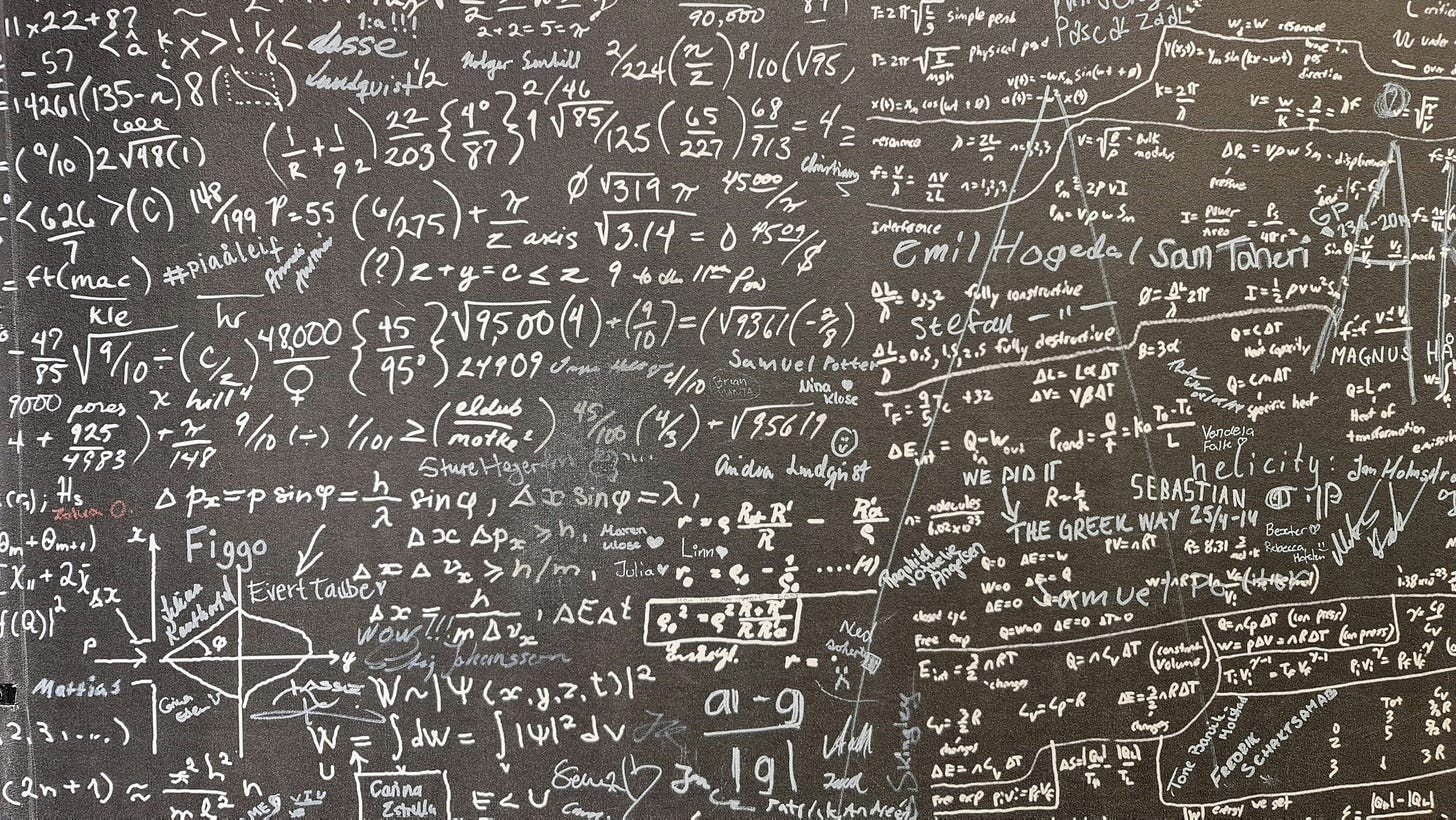(Photo by Thomas T on Unsplash)
Mark O’Brien has written a response to my last post: https://substack.com/inbox/post/153216716?triedRedirect=true
Again he is trying to persuade me that multiverse rather than cosmic hope is the better explanation of fine-tuning.
I’m rushing to finish things off for Christmas, but I’ll just say briefly that this is a non-standard way of formulating the evidence for fine-tuning, and my initial reaction is that it doesn’t raise the probability either of cosmic hope or a multiverse. But that’s a statement not an argument, and I realise that that’s where the discussion needs to go next.
It’s wonderful when you can really see you’re making progress in an argument. I hope there is cosmic hope but I will continue to try to evaluate the evidence and arguments dispassionately.
Happy Christmas!



I don't think you need to appeal to a multiverse to defeat the fine-tuning argument. The real problem is that fine-tuning proponents think that it is possible to model what the universe would be like if its physical constants were changed, and you can't do that. If alternate universes are unimaginable, then the fine-tuning argument can't get off the ground. https://open.substack.com/pub/eclecticinquiries/p/the-fine-tuning-argument-cant-get?r=4952v2&utm_campaign=post&utm_medium=web&showWelcomeOnShare=false
I think we can figure this one out in plain English.
A conscious observer finds itself alive in a universe, and learns enough physics to find out that 1) the physical constants of his universe look awfully fine tuned for life, and 2) life is otherwise exceedingly unlikely without fine-tuned constants. Is this evidence for a multiverse over a single lucky universe? As you explain, no. In a multiverse, living observers will see a fine-tuned universe around them; and in a single lucky universe, living observers (given that they exist) will equally see a fine-tuned universe around them. So no update.
But, by the same token, it's also not evidence for cosmic purpose. In a world with cosmic purpose, living observers will see a fine-tuned universe around them. In a world without cosmic purpose, living observers (given that they exist) will also see a fine-tuned universe around them. Similarly, no evidence either way.
So we have three theories: a single lucky universe, a huge multiverse, or cosmic purpose, and all three predict our observation equally well. Bummer.
But we still have the intuition that fine-tuning requires an explanation. Let's try to formalize that into a general principle, so that we can add it to our system and see if anything changes. I think a fair formulation is that we would like our basic theory to be as general as possible. The more arbitrarily precise or complicated elements a cosmological theory requires, we will give it a proportionally lower prior probability. Clearly "pick random constants" is much simpler than "pick constants within this narrow range".
A simple model would be that if a theory requires n bits for its formulation, we give it a prior probability of 2^-n. But that's too harsh. At the very least we need to discount the number of bits of theory needed to have any universe at all; if we call that N, then let's take 2^-(n-N) as our prior probability.
So let's see how our three main theories stack up:
1. There is a single universe, fine-tuned by brute fact, and we're in it. Here the entire fine-tuned values go into the initial theory, so we pay a heavy price by our principle. If we optimistically guesstimate only 40 bits of fine-tuning info, our lucky universe has a prior probability of only 2^-40, which is around 10^-12. Oof.
2. There is a multiverse process that creates universes with a wide variety of parameters. Maybe only the free constants vary, or maybe also the dimensions, or even the shape of the equations. In the most general case, every possible equation that would describe a viable universe, gets instantiated as one. There is very little extra information in this theory, just a few bits to describe "try everything". Equations that don't describe a universe don't even need to be excluded because they won't create one anyway. So if its prior is not 1, it's at worst an order of magnitude or two below. Nice.
3. There is a process that creates universes, and that process favors universes that can harbor life. This means that the basic theory must contain an approximate criterion for life in its formulation. The rules for Conway's game of life compress to ~20 bits of info (google gemini optimistic estimate), which sounds like less than the bare minimum to be able to distinguish life from non-life. So let's give it 2^-20, which is around 10^-6. It's still a heavy burden to carry a criterion for life around, but not quite as heavy as carrying its complete blueprint.
Clearly the multiverse wins by a large margin.
But there's one more thing to consider. Theory #1 creates just this universe, while #2 makes a huge amount of them, and #3 is somewhere in between. Given that we find ourselves in *this* universe specifically, should we also compare how likely that appears in each theory, and update accordingly?
I think not. Here on Earth we don't consider that it requires a cosmic explanation why "I" was born in Spain that day, and not in Botswana or somewhere else. I see the world from Spain, and another guy who was born in Belgium sees the world from Belgium, but it's still the same world, each of us is in the same situation, and there's nothing to explain about that.
Similarly, in a large multiverse teeming with intelligent life, people in this universe wonder how it came to be fine-tuned, and intelligent beings in other universes presumably do the same. So which one *we* happen to be doesn't change anything to our initial conundrum.
So as far as I can tell, Mark is right.